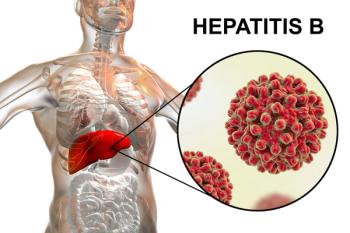
Impact of the SARS-CoV-2 Omicron Variant on COVID-19 Reinfection Rates
The Omicron variant radically changed reinfection rates.
The emergence of the Omicron variant of the SARS-CoV-2 virus in late 2021 radically changed the pandemic, as prior to mid-December 2021, COVID-19 reinfection was uncommon, according to research results1 presented at IDWeek 2022, held October 19 to 23 in Washington, D.C.Understanding the characteristics of those who experienced multiple reinfections could be important as COVID-19 subvariants become increasingly transmissible.
In Greece, all positive COVID-19 tests—both rapid antigen and PCR—are collected by the COVID-19 National Electronic Registry. Cases were reported daily based on the first positive test for each person. Following the introduction of the Omicron variant, the program introduced a new case definition to include suspected reinfections. Reinfection was defined as a positive PCR or rapid antigen test ≥ 90 days after a previous positive test.
By December 15, 2021, 6348 suspected reinfections were recorded, representing 0.6% of laboratory cases. Suspected reinfections represented for 3.7% of the total amount of first infection episodes up to April 3, 2022 (n = 3,077,711), demonstrating a noticeable impact on case counting. Among cases that were suspected reinfections, 99.3% were a second episode of infection; the remaining 0.7% were multiple reinfections. The median interval between subsequent infections was 8 months.
The increased rate of re-infection during the rise of Omicron highlighted the variant’s ability to evade immunity. “Knowledge about the re-infections and their characteristics provides a proxy of the immune protection from previous exposure to COVID-19, against circulating variants over time,” the researchers concluded.
Reference
1. Tsiodras S, Mellow K, Gkolfinopoulou K, et al. Rise of COVID-19 re-infections as omicron variant prevailed: implications on monitoring the course of the pandemic. Presented at: IDWeek 2022; October 19-23, 2022; Washington, DC. Poster 1892.
Newsletter
Pharmacy practice is always changing. Stay ahead of the curve with the Drug Topics newsletter and get the latest drug information, industry trends, and patient care tips.























